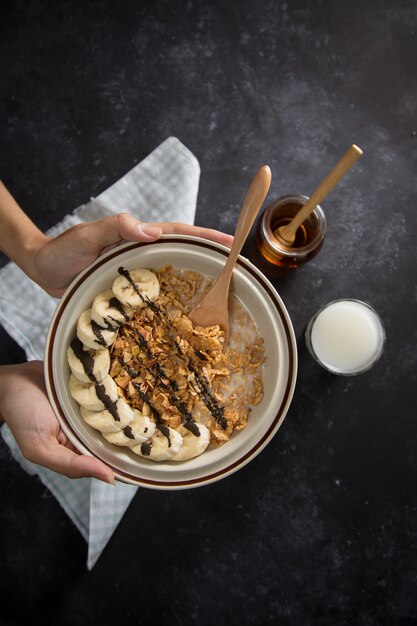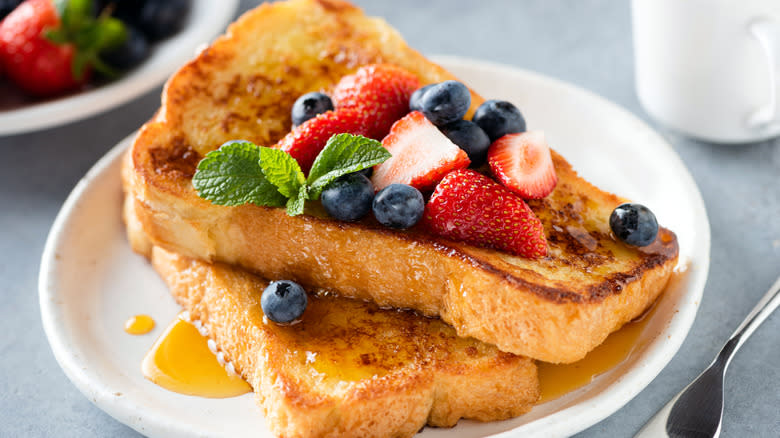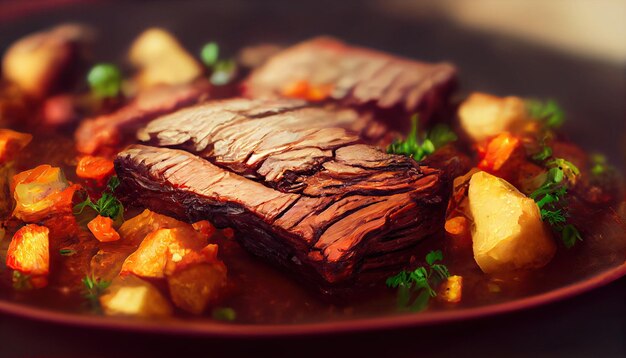Embracing a lifestyle centered around the nourishment provided by the earth can lead to vibrant health and well-being. This approach not only emphasizes the importance of whole, unprocessed ingredients but also encourages a diverse array of flavors and textures that delight the palate. The journey towards this lifestyle invites individuals to explore the richness of plant-based foods, which can result in numerous benefits for both the body and mind.
With a focus on incorporating a variety of fruits, vegetables, legumes, and grains, individuals can create meals that are both satisfying and nourishing. Each culinary experience offers an opportunity to experiment with different combinations, fostering creativity in the kitchen while fulfilling nutritional needs. As one delves deeper into this approach, the advantages of plant-based selections become increasingly evident, promoting an overall sense of vitality.
Furthermore, this nutritional strategy can have a positive impact on environmental sustainability. By prioritizing plant-derived foods, individuals contribute to a more eco-friendly food system, reducing their carbon footprint. Such a commitment not only benefits personal health but also supports the well-being of the planet, making it a fulfilling choice for conscientious individuals.
Vegan Diet Basics for Beginners
Transitioning to a plant-based lifestyle can be an exciting journey filled with numerous culinary delights and health benefits. This approach emphasizes the consumption of a variety of fruits, vegetables, legumes, grains, nuts, and seeds, fostering a rich and diverse intake of essential nutrients. Understanding the fundamentals is key to making this transition enjoyable and sustainable.
Starting Simple: For those new to this way of eating, beginning with simple dishes is crucial. Focus on incorporating more plant foods into your meals gradually. Explore local markets for seasonal produce, and experiment with different cuisines that highlight these ingredients.
Essential Nutrients: It’s important to be conscious of specific nutrients often associated with this lifestyle. Key elements like protein, iron, calcium, and vitamin B12 can be obtained from various plant sources. Incorporating foods such as lentils, chickpeas, leafy greens, and fortified products can help meet nutritional needs.
Planning Meals: Creating a variety of interesting and satisfying dishes is essential. Consider batch cooking and meal prepping to save time during the week. This approach not only makes it easier to adhere to this lifestyle but also allows for creative experimentation in the kitchen.
Adapting Your Environment: Surrounding yourself with supportive resources can enhance your experience. Seek out community groups, websites, and cookbooks dedicated to this way of life. Engaging with others who share similar interests can provide motivation and inspiration.
Listening to Your Body: Finally, maintaining awareness of how different foods make you feel is vital. Everyone’s body reacts differently, so it’s important to pay attention and adjust your food choices accordingly. Embrace the process and allow yourself to discover what works best for you.
Essential Nutrients for Plant-Based Meals
When embracing a lifestyle centered around plant-based foods, understanding the critical components necessary for overall well-being becomes paramount. These nutrients must be thoughtfully incorporated to maintain optimal health and vitality. The following sections will delve into key elements that should not be overlooked when crafting nutritious plates from nature’s bounty.
Key Nutrients to Consider
Among the crucial nutrients to integrate into a plant-centric regimen are proteins, iron, calcium, and omega-3 fatty acids. Proteins serve as fundamental building blocks, essential for muscle repair and overall growth. Sources like legumes, lentils, and quinoa can provide the necessary intake.
Iron plays a vital role in transporting oxygen throughout the body. Plant sources such as beans, seeds, and leafy greens can be beneficial, especially when paired with vitamin C-rich foods to enhance absorption. Furthermore, calcium is indispensable for maintaining strong bones. Incorporating foods like fortified plant milks and tofu can help achieve adequate levels.
Other Important Components
Transitioning to a plant-forward lifestyle also necessitates attention to vitamin B12 and zinc. While B12 is typically found in animal products, it can be obtained through fortified foods or supplements. Zinc, crucial for immune function, can be sourced from nuts, seeds, and whole grains. Lastly, omega-3 fatty acids, essential for brain health, can be found in flaxseeds and chia seeds.
By focusing on these vital nutrients, one can cultivate a wholesome, satisfying, and balanced approach to meals that honors the power of plant-based nutrition.
Weekly Meal Prep Ideas for Vegans
Preparing nourishing and flavorful dishes in advance can simplify your culinary routine and support a balanced lifestyle. By dedicating some time at the beginning of the week, you can ensure that all your meals are ready to go, reducing the temptation to reach for less healthy options. Below are some innovative suggestions to help you streamline your cooking process and maintain a varied menu throughout the week.
- Batch Cooking
Choose one day to cook larger quantities of staple foods that can be used in multiple recipes.
- Quinoa or brown rice
- Lentils or chickpeas
- Roasted vegetables such as sweet potatoes, zucchini, and bell peppers
- Flexible Salad Bases
Create versatile salad bases that can be transformed each day by adding different toppings.
- Mix of greens: spinach, kale, or arugula
- Proteins: beans, nuts, or seeds
- Dressings: store in jars for easy access
- Snacks and Sides
Prepare healthy snacks that you can grab on the go, ensuring you always have nutritious options available.
- Hummus with carrot or cucumber sticks
- Nuts and dried fruit mixes
- Popcorn seasoned with nutritional yeast
- Freezer-Friendly Options
Make use of your freezer to store meals that can be easily reheated during busy days.
- Soups and stews
- Veggie burgers or patties
- Frozen smoothie packs with fruit and greens
By implementing these strategies, you can enjoy a delightful variety of dishes while saving time and energy throughout the week. Consistency in preparation not only enhances flavor but also supports your overall well-being.
Delicious Recipes for Every Meal
Exploring a world of flavors and nourishing ingredients can transform each dining experience into a culinary adventure. Satisfying your palate while embracing vibrant and wholesome foods is entirely achievable. Below, you will find a variety of recipes that cater to breakfast, lunch, and dinner, each designed to delight your senses and provide essential nutrients.
Breakfast Delights
Start your day with a burst of energy by enjoying chia seed pudding. Combine chia seeds with your choice of plant-based milk, a drizzle of maple syrup, and your favorite fruits. Allow it to thicken overnight for a creamy, delightful start to the morning.
Hearty Lunch Options
A colorful quinoa salad makes a perfect midday meal. Toss together cooked quinoa, cherry tomatoes, diced cucumber, avocado, and fresh herbs like parsley or cilantro. Finish it with a zesty lemon-tahini dressing for a refreshing and fulfilling dish.
Indulging in these scrumptious recipes ensures that every time you gather around the table, you celebrate both flavor and nutrition, creating memorable moments with each bite.
Benefits of Adopting a Vegan Lifestyle
Embracing a plant-based way of living can lead to numerous advantages that positively impact both personal well-being and the environment. The choice to eliminate animal products from one’s diet often results in a variety of health, ethical, and ecological benefits.
- Improved Health: A diet rich in fruits, vegetables, whole grains, and legumes is often associated with lower risks of chronic diseases, such as heart disease, diabetes, and certain cancers.
- Weight Management: Many individuals find it easier to maintain a healthy weight while following a plant-focused approach due to the lower calorie density of plant foods.
- Increased Energy Levels: Consuming a variety of nutrient-dense, plant-based foods can lead to enhanced overall energy and vitality.
In addition to the personal health benefits, this lifestyle choice also emphasizes ethical considerations and environmental sustainability.
- Animal Welfare: Opting for a lifestyle that minimizes harm to animals reflects a compassionate choice, supporting the welfare of living beings.
- Environmental Impact: A plant-centric approach typically results in a reduced carbon footprint, lower water usage, and decreased deforestation, making it a more sustainable choice for the planet.
In summary, transitioning to a plant-based lifestyle offers numerous advantages that extend beyond individual health, encompassing ethical and environmental dimensions that contribute to a better world for all.
Tips for Dining Out as a Vegan
Enjoying a meal outside your home can be an exciting experience, but it can also pose challenges if you adhere to a plant-based lifestyle. Navigating menus and making suitable choices is essential for ensuring a delightful dining experience. Here are several suggestions to help steer you in the right direction.
Research the Restaurant: Before heading out, take the time to look up the eatery’s menu online. This will give you a sense of their offerings and help you identify potential dishes that align with your preferences.
Ask Questions: Don’t hesitate to speak with the staff about your requirements. Inquire whether specific dishes can be modified or cooked without animal products. Most restaurants appreciate when patrons communicate their dietary needs.
Look for Plant-Based Options: Many establishments now feature dedicated sections on their menus showcasing meat-free dishes. Focus on these selections, as they’re likely designed to cater to non-meat eaters.
Order Sides Creatively: If the main courses don’t appeal to you, consider combining various side dishes to create a satisfying meal. Items like salads, roasted vegetables, grains, or legumes can complement each other well.
Don’t Be Afraid to Customize: Often, meals can be tailored to suit your dietary choices. Request that sauces are left off or substitutes are made, ensuring that you get the flavors you enjoy without compromising your lifestyle.
Be Open and Adventurous: Dining out is all about trying new flavors and experiences. Explore unfamiliar dishes or cuisines that may surprise you with their plant-based creations.
Support Local and Small Businesses: Many independent restaurants aim to cater to diverse clientele and may offer more flexible options compared to larger chains. Supporting these establishments can lead to delightful discoveries.
With these strategies, dining out can become an enjoyable aspect of your culinary journey. Embrace the adventure and savor every tasty moment!
Q&A: Vegan diet meal plan
How can a plant-based diet help you lose weight, and what role does a balanced vegan diet play in achieving weight loss goals?
A plant-based diet can help you lose weight by focusing on whole, nutrient-dense foods that are naturally lower in calories and higher in fiber. Foods like broccoli, edamame, black beans, and oats provide plant-based protein and essential nutrients while keeping you full for longer. Following a balanced vegan diet that emphasizes a variety of foods, including healthy fats from walnuts and plant-based protein sources, supports sustainable weight loss. A well-planned vegan meal plan for weight loss, including meals and snacks, ensures you meet your nutritional needs without consuming excess calories, contributing to healthy eating habits.
What are some of the best vegan foods for a balanced vegan diet, and how can they support a healthy eating plan?
Some of the best vegan foods for a balanced diet include broccoli, black beans, edamame, walnuts, oats, and vegan yogurt. These foods are rich in plant-based protein, fiber, and healthy fats, which are essential for maintaining energy levels and overall health. Including a variety of foods in your diet helps ensure you’re getting all necessary vitamins and minerals. A vegan diet plan for weight loss, which incorporates these nutrient-dense options, can be tailored by a dietitian to align with your weight loss goals while promoting balanced nutrition and healthy eating habits.
How can a 7-day vegan meal plan support weight loss goals, and what should be included in a healthy vegan meal plan?
A 7-day vegan meal plan can support weight loss goals by offering a structured eating plan that focuses on whole, unprocessed foods. Each day might include meals such as vegan curry, high-fiber oat bowls, and balanced vegetarian meals with plant-based protein sources like black beans and edamame. Snacks such as walnuts or vegan yogurt can keep you satiated between meals. The plan can help control calorie intake while providing essential nutrients, making it easier to follow a vegan diet for weight loss. Including a variety of foods ensures you stay healthy on a vegan diet and avoid nutrient deficiencies.
What are some common misconceptions about following a vegan diet, and how can a balanced eating plan prevent nutritional gaps?
One common misconception about following a vegan diet is that it lacks sufficient protein or essential nutrients. However, protein sources like black beans, edamame, oats, and walnuts provide ample plant-based protein when included in a balanced diet. A healthy vegan meal plan, planned with the help of a dietitian, ensures you get all essential vitamins and minerals while avoiding highly processed vegan foods that could lead to weight gain. Following a balanced vegan diet that includes a variety of whole foods into your diet is key to maintaining health and meeting weight loss goals.
How can a vegan weight loss meal plan support health goals, and what key components should be included to ensure balanced nutrition?
A vegan weight loss meal plan supports health goals by focusing on nutrient-dense, high-fiber foods that keep you full while managing calorie intake. Plant-based eating emphasizes whole grains, fruits, vegetables, nuts, and seeds, which are excellent vegan protein sources and provide essential vitamins and minerals. Following a balanced diet that includes a variety of vegan dishes helps meet daily nutritional requirements. For example, using lemon juice in salads instead of high-calorie dressings can add flavor without extra calories. A well-structured plan may also reduce cholesterol levels and support better management of conditions like type 2 diabetes.
What are some essential tips for vegan meal prep, and how can they simplify following a vegan meal plan for weight loss?
Vegan meal prep is an effective way to stay consistent when following a vegan meal plan for weight loss. Creating a weekly shopping list ensures you have all the necessary ingredients, such as fresh vegetables, legumes, and whole grains, while minimizing impulsive, unhealthy purchases. Preparing easy vegan meals, like chickpea bowls or lentil soups, in advance saves time and helps you stick to your plan. Vegan snacks, including fruit, nuts, or hummus with veggies, are great options for maintaining energy throughout the day. Meal prepping ensures you’re always equipped with balanced vegan dishes that align with your health goals.
How do plant-based diets have been linked to a number of health benefits, and what role do vegan protein sources play in these diets?
Plant-based diets have been linked to a number of health benefits, including improved heart health, reduced cholesterol levels, and better blood sugar control, which can help manage or prevent type 2 diabetes. Vegan protein sources, such as beans, lentils, tofu, and quinoa, play a vital role in maintaining muscle mass, energy levels, and overall health. Following a balanced diet that includes diverse vegan protein sources helps meet daily protein requirements. Whether you’re enjoying an easy vegan dish or preparing meals from scratch, plant-based protein is essential for supporting long-term health and wellness.
What are some strategies to get you started on a vegan diet, and how can you ensure you’re following a balanced diet over time?
To get you started on a vegan diet, begin by incorporating plant-based meals gradually into your routine. Build a shopping list filled with fresh produce, whole grains, legumes, and healthy fats. Explore vegan recipes to add variety and discover easy vegan dishes that you enjoy. Following a vegan meal plan helps ensure you’re meeting your nutritional needs without missing out on essential nutrients. Additionally, focus on a high-fiber diet and include vegan snacks like hummus or nuts to keep you full between meals. Over time, consistency and variety in your diet may help you achieve and maintain long-term health benefits.






